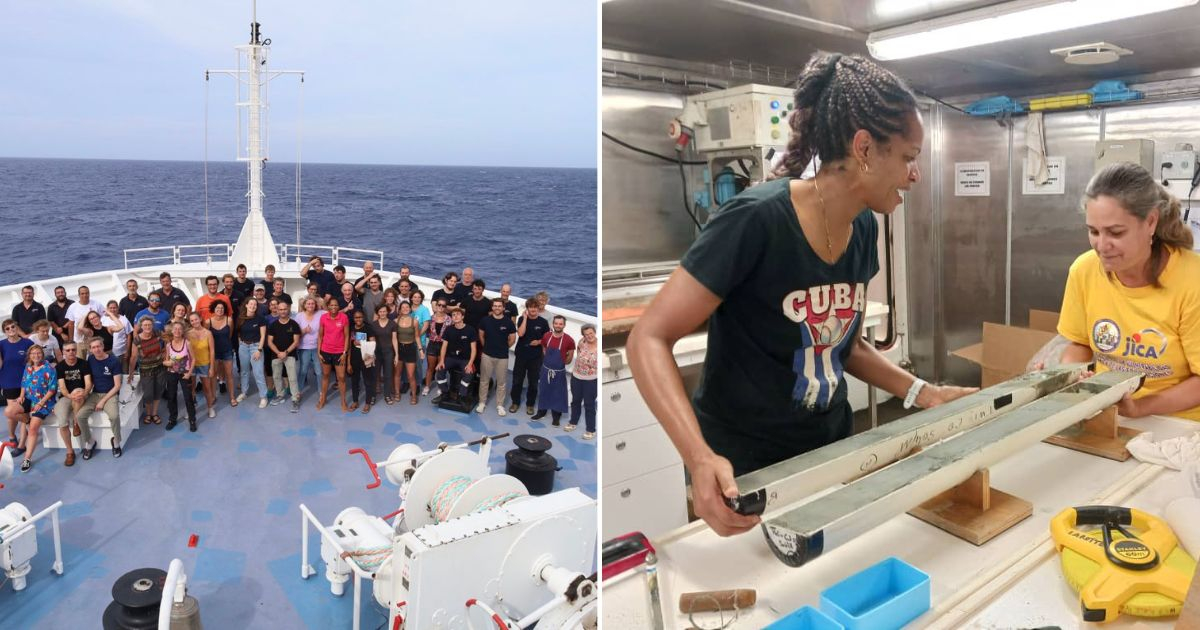
Specialists from six countries, including Cuban experts, are participating in a scientific expedition in the Caribbean, focused on the highly seismic northern area of Santiago de Cuba, with research that will continue until August.
The oceanographic fleet Pourquoi-Pas? (Why Not?), belonging to the French research institute Ifremer and the French Navy, began its journey last June as part of the marine research project Haiti-Twist, the official newspaper Granma specified.
In this expedition, researchers from Cuba, France, Belgium, Germany, Haiti, and the United States are determining geophysical parameters and using equipment to obtain accurate records of possible faults.
The objective is to analyze the risks of the active system of twin failures located on the northern edge of the Caribbean tectonic plate. Additionally, there are plans to recover seismometers installed on the ocean floor.
Doctor Bladimir Moreno Toirán, a specialist at the National Center for Seismological Research (CENAIS) in Santiago de Cuba, detailed that the marine expedition aims to "characterize the behavior and movement of the tectonic fault, and determine the thermal state and the influence of fluids in the fault rupture process."
Additionally, it also aims to investigate the tectonic history and the structure of the crust and mantle in the region.
It was argued that, during the campaign, various analyses of geophysical measurements are planned. These include multichannel reflection seismic and wide-angle seismic, using seismometers placed on the seabed.
CENAIS specified on the social media platform X that the Cuban institution is already in "the processing of the valuable information collected during the expedition."
"The Pourquoi pas? In Cuban waters, carrying out core extraction of up to 3,000 meters deep, penetrating south of Santiago de Cuba, with sediment thickness of up to 10.5 meters," indicated the scientific center in another publication.
In addition, he noted on the social media platform X that the processing of cores extracted from the south of Cuba would allow scientists, including those from CENAIS, to make decisions.
The Oriente geological fault, the main area of seismic activity and consisting of a plate boundary in the southern part of eastern Cuba, recorded the highest number of earthquakes on the island last year, reported EFE.
According to the annual summary from CENAIS, the Caribbean nation recorded 7,475 movements in 2023, of which 14 were perceptible. The magnitudes of the movements ranged from less than 3 to as high as 5.9 on the Richter scale.
Recently, the CENAIS presented a map that compiles the epicenters of the earthquakes detected by the network of Cuban seismological stations from January 1998 to February 2024, highlighting the areas where the density and likelihood of seismic activity are higher in a seismically active country.
The study was analyzed on the portal of the Cuban Science Network (Redcien) by two local experts, Enrique Arango Arias and Manuel A. Iturralde Vinent, who emphasized that despite its low magnitude and low perceptibility, monitoring is important, as it can cause fractures in rigid structures and, over time, lead to more serious problems.
In 2023, the institution itself created an unprecedented map that indicates the tsunami danger zones along the coast of Cuba.
Granma indicated that the map was presented during the XI International Congress on Disasters and the VII International Firefighters Conference, events taking place at the Palace of Conventions in Havana.
What do you think?
COMMENTFiled under: